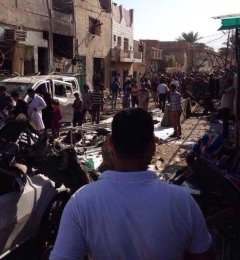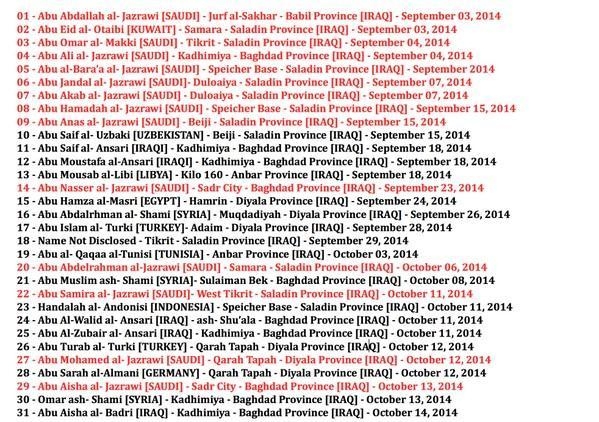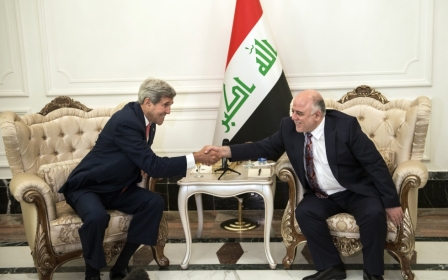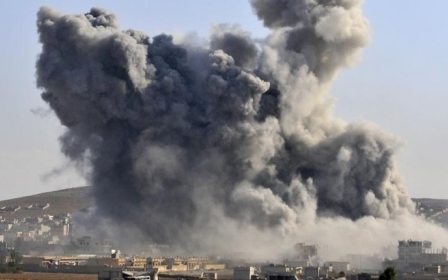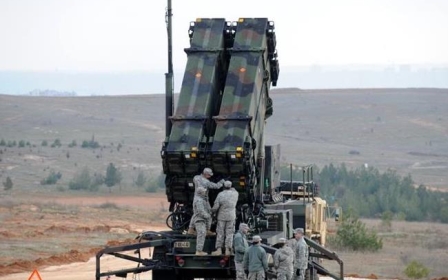Bombs strike heart of Baghdad and Karbala in Iraq

The latest car bomb attack to hit Iraq’s capital, Baghdad, killed at least 11 people on Monday and left some 26 injured, according to a security source.
The bomber detonated his explosives as worshippers at a Shiite mosque in the Sinak area of central Baghdad left noon prayers.
It is the second such attack targeting Shiite worshippers in 48 hours - an explosion by a suicide bomber targeted a funeral ceremony at a Shiite mosque in eastern Baghdad on Sunday, leaving 19 people dead and 28 injured.
Sunday’s deadly bomb hit a suburb of the city, al-Harithiya, which had until then been relatively free of the explosions that have plagued Iraq’s capital since the US-led invasion in 2003.
Islamic State militants, who have been in control of Iraq’s second city of Mosul since June, have claimed responsibility for the majority of bombings in the capital in the past month.
While Baghdad has recently become a focus for suicide attacks, the Shiite shrine city of Karbala, some 100 kilometres south-west of the capital, has also seen a number of deadly explosions.
Local news site al-Wasat gives a primary toll of at least 10 dead and 40 injured in the triple attacks.
No group has yet claimed responsibility for the blasts.
Karbala, famous for being the site where Shiite hero Imam Husayn was killed, had until Monday been relatively unscathed by the recent wave of suicide attacks.
45 percent of Iraq bombers were Saudi nationals
The attacks, which appear to be an attempt to ignite sectarian tensions in Iraq, come as it is revealed that the majority of Islamic State suicide bombers to launch attacks in Iraq in the past 45 days were Saudi nationals.
Zaid Benjamin, an independent journalist working in Washington, compiled a list of the identity of the dozens of suicide bombers from statements issued by the militant group itself.
He found that, of the 31 IS fighters to launch suicide attacks in Iraq during that period, 14 of them were originally from Saudi Arabia.
Stephane Lacroix, a political scientist at Sciences Po, told MEE that while Saudi Arabia has not directly funded the group, channels of private funding have reached IS from the Gulf State, which has now become one of the US’s key allies in the fight to “degrade and destroy” the group.
He also said that some religious scholars, who are to some extent allowed to act autonomously, have been allowed to express support for extremist groups, including IS to some extent.
Lacroix told MEE that the group’s expressed ideology “certainly has appeal within the Saudi population.”
“The sectarian element [of IS discourse]…is of course something that resonates with the worldview of many Saudis.”
Regarding the reports that surfaced on Monday, the embassy of Saudi Arabia in London gave no comment, but directed reporters to previous statements on the embassy’s website.
New MEE newsletter: Jerusalem Dispatch
Sign up to get the latest insights and analysis on Israel-Palestine, alongside Turkey Unpacked and other MEE newsletters
Middle East Eye delivers independent and unrivalled coverage and analysis of the Middle East, North Africa and beyond. To learn more about republishing this content and the associated fees, please fill out this form. More about MEE can be found here.



